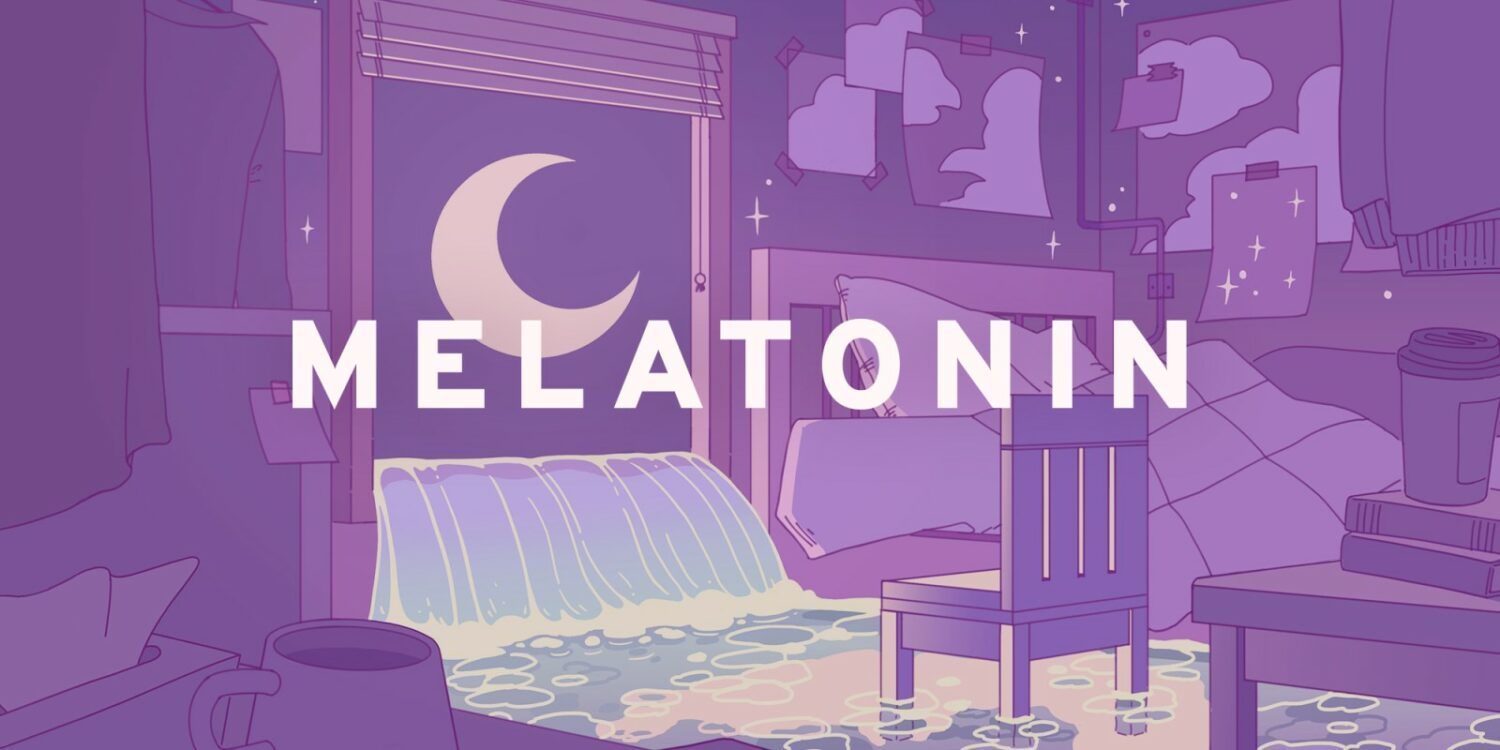Melatonin is a rhythm-based title for the Nintendo Switch. That simple description belies the true nature of this game, which involves the impact of our daily life on our dreams and sleep. But does this abstract notion work? Thankfully, Melatonin hits all the right beats.
Have you ever stayed up late watching a show or playing a game, only to be consumed by that very same content as you sleep? Melatonin takes that concept and runs with it. The main character is an unnamed individual who falls asleep on the couch every night. We enter this person’s dreams, running around a cloud-based area to see what lies inside the subconscious.

The game is divided into four nights, each beginning with a short living-room scene. Our protagonist is either eating, watching TV, or even meditating before being consumed by sleep. This is where we enter the land of dreams. Each night consists of four dreams to play through, with eight stars required to move on to the next evening.
The concepts are relatable, including everything from work and stress to dating and social media. Shopping, food, the past, and the future are other topics that occupy the mind at night. Each of these creative ideas serves as a level. In one, you’ll need to swipe a credit card to the beat of items appearing on a shelf. Another has you climbing a ladder to escape rising lava, jumping left and right when other ladders appear – all in time to the music, of course. You’ll catch food in your mouth, use a claw machine, and even shoot aliens. These elements are reminiscent of other genres, from platformers to shooters, but it’s always about hitting the beat.

Gameplay generally involves tapping or holding a button at the right time. Sometimes you’ll only need one button, other levels require alternation between three. Beats are differentiated by specific sounds, like a noise indicating left or right. There are also subtle visual cues to assist, such as the size of a photograph to be burned or a meter filling before a rocket launches.
This gameplay mechanic can be tricky, particularly at first. That’s why there’s a practice mode. Once you’ve learned the ropes, you can attempt the level’s Score Mode. A handy meter indicates your progress as you earn up to three stars per level. There’s also an unlockable Hard Mode for those wanting an extra challenge or a reason to revisit the title once completed.

Music plays a key part of any rhythm game, and the tunes in Melatonin are terrific. In fact, the soundtrack is available on Spotify. Each track feels perfect for its content, helping you find the right groove. The visuals are equally lovely, with soft, pastel colors that create a relaxing experience designed to emulate the land of sleep.
Melatonin provides many accessibility features to cater to all players. If you’re struggling with a level, you can adjust the visual or audio cues to assist. You can also alter the settings to allow for easier scoring, so you’re not penalized as much for hitting beats too early or late. There’s still room for error, it just dials down the difficulty a little. These all factor into a well-thought-out interface with the player in mind.

Overall, Melatonin is a dreamy rhythm game that hits all the right notes. It’s compelling yet relaxing, with an addictive quality that will have you yearning for more.
Review: Melatonin (Nintendo Switch)
Great
Melatonin is a dreamy rhythm game that hits all the right notes. It’s compelling yet relaxing, with an addictive quality that will have you yearning for more.


